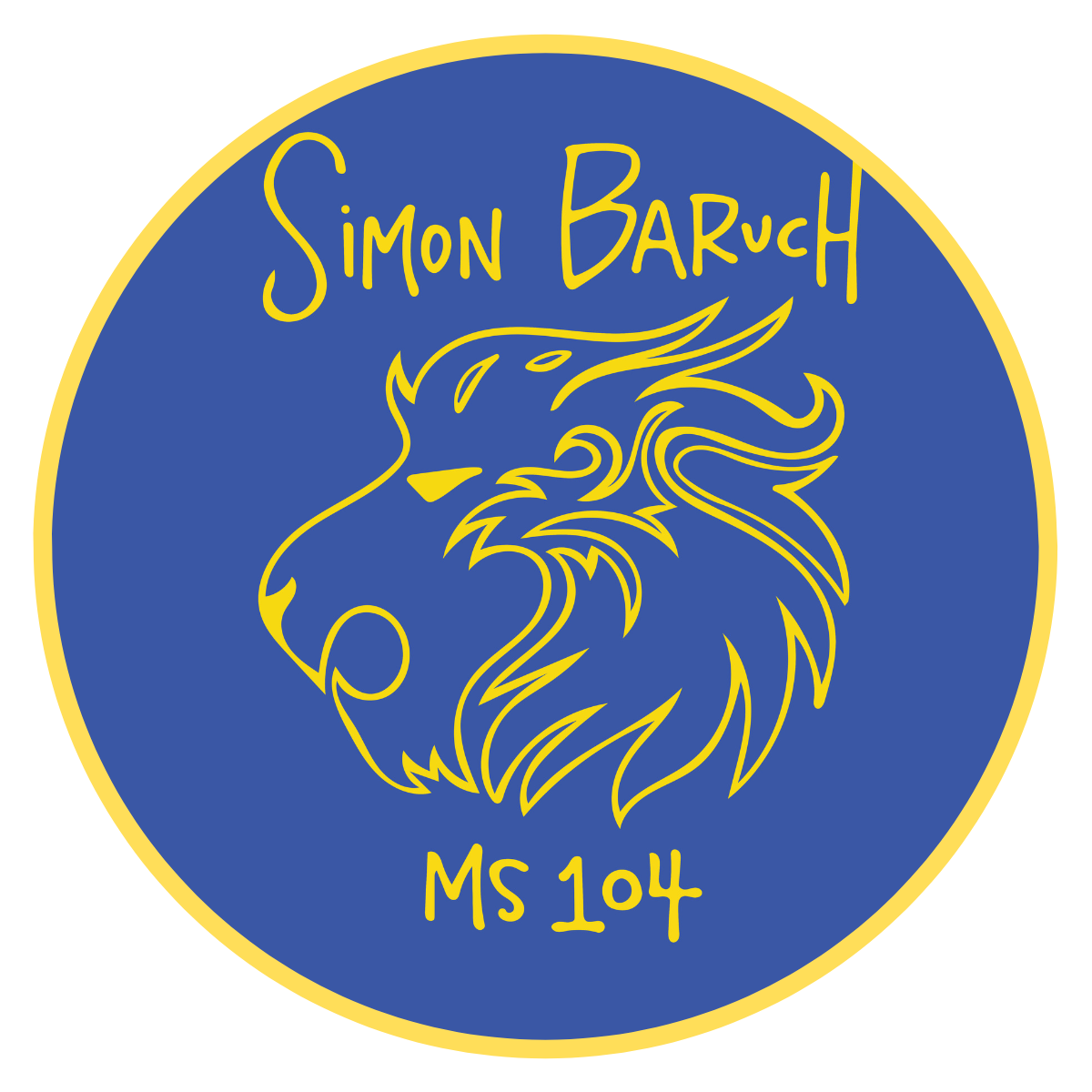Academics
To see our grading policy, click HERE.
MATHEMATICS
Illustrative Mathematics
MS104 uses Illustrative Math to guide our base mathematics curriculum.
We believe that all students should be able to reason and communicate proficiently in mathematics. They should have knowledge of and skill in the use of the vocabulary, forms of representation, materials, tools, techniques, and intellectual methods of the discipline of mathematics, including the ability to define and solve problems with reason, insight, inventiveness, and technical proficiency.
You can learn more about Illustrative Math on their WEBSITE.
To access and review past state math and ELA exams, including questions and answers, click HERE.
Additional Resources
In addition to our basic curriculum, MS104 encourages the use of iReady, a great online learning resource that students can use in the classroom as well as at home. iReady offers personalized instruction and practice based on student diagnostic results, gearing lessons toward the student's latest results, so that they are targeted for the skills where there is room for growth.
To learn more about iReady’s Personalized Instruction feature, click HERE.
(Also available in Spanish and Mandarin)For iReady’s Family Guide, click HERE.
(Also available in Spanish and Mandarin)And for the iReady General Family Center, click HERE.
ENGLISH LANGUAGE ARTS (ELA)
MS 104 has adopted the Columbia University Teachers’ College Reading and Writing Project. Our goals with the implementation of this curriculum is to foster an authentic love and appreciation for reading and writing with our students and to increase the volume of reading and writing. Students are provided with ample amount of choice and agency through the texts they choose to read and the pieces they choose to write.
Our ELA teachers utilize a workshop model in each lesson allowing students time to practice, perfect and take ownership over the reading and writing skills taught in each unit. Reading and writing workshop is an approach that helps students become lifelong, avid, and expert readers and writers. Over the course of the year, students will be exposed to a wide variety of writing opportunities such as expository, narrative, poetry and argumentative. Additionally, students will experience authentic reading experiences through a balanced literacy approach. Through each unit of study, students choose from a range of books meeting their independent reading level, are paired with reading partners and participate in book clubs. The units are genre or theme based such as “A Deep Study of Character”, “Tapping the Power of Nonfiction” and “Dystopian Book Clubs”.
To access and review past state ELA and math exams, including questions and answers, click HERE.
104 ONLINE LIBRARY
To explore our online library resources, please click HERE.
SOCIAL STUDIES
The Social Studies curriculum at 104 follows the New York City Scope and Sequence and focuses on the following themes throughout each grade:
Individual Development and Cultural Identity
Development, Movement, and Interaction of Cultures
Time, Continuity and Change
Geography, Humans and the Environment
Development and Transformation of Social Structures
Power, Authority and Governance
Civic Ideals and Practices
Creation, Expansion, and Interaction of Economic Systems
Science, Technology, and Innovation
Global Connections and Exchange
6th GRADE UNITS OF STUDY: EASTERN HEMISPHERE
Geography of the Eastern Hemisphere
Geography skills
Five Themes of Geography
Analysis of real-world geographical issues by reading A Long Walk to Water
First Humans, Neolithic Revolution, and the Early River Valley Civilizations
Distinguishing between primary and secondary sources
Analyzing sources in order to answer document-based questions
Contextualizing the study of ancient history by considering the role of archaeology
Analysis of ancient river valley civilizations (Egypt and Mesopotamia)
Comparative Classical Civilizations in the Eastern Hemisphere
Comparative study of ancient Greece, Rome and China
Classical Civilization Newspapers
The Mediterranean World and Interactions Across the Eastern Hemisphere
Analysis of the Eastern Hemisphere after the fall of Rome: the Silk Road, Black Death, Explorers
Focus on geographic themes
7th GRADE UNITS OF STUDY:
Native Americans, Early Encounters and Colonial Development
Ancient Civilizations of the American Continent
North American Indigenous People
European Exploration
Columbian Exchange
Colonization of the Americas
Development of Thirteen Colonies
Road to Independence
The French and Indian War
Proclamation of 1763
British Taxation and Colonial Response
The War for Independence
A New Nation: The United States Constitution
The Constitutional Convention
The Articles of Confederation
Constitutional Compromises
Separation of Powers / Checks & Balances
Bill of Rights
Washington, Adams, and Jefferson
The Louisiana Purchase
A Nation Grows: Expansion & Reform
Lewis & Clark
War of 1812
Monroe Doctrine
Missouri Compromise
Andrew Jackson’s Presidency
Mexican-American War
Gold Rush
Transcontinental Railroad
Industrial Revolution
A Nation Divided: Civil War
Cotton Gin
Bleeding Kansas
John Brown / Harper’s Ferry
Factors of Division
Election of Lincoln (1860)
Fort Sumter
Civil War Campaign
8th GRADE UNITS OF STUDY:
Reconstruction
A Changing Society and The Progressive Era
The United States as an Expansionist Nation
WWI and the United States Between Wars
WWII: The United States Assumes Worldwide Responsibilities
From WWII to the Present: The Changing Nature of the American People
SCIENCE
The integrated science curriculum at Baruch follows a spiral curriculum where in each grade students are study in depth topics in physical, life, and earth science. The curriculum follows the New York City Scope and Sequence which is now currently aligned to the national Next Generation Science Standards.
6TH GRADE UNITS OF STUDY
Energy & Simple Machines
Weather & the Atmosphere
Diversity of Life
Ecology
7TH GRADE UNITS OF STUDY
Energy & Matter
Geology
Human Body
Plants & Animals
8TH GRADE UNITS OF STUDY
Evolution
Genetics
Forces and Motion
Astronomy
Students actively engage in hands on inquiry and lab experiences that focuses on the NGSS science practices:
Asking Questions & Defining Problems
Developing & Using Models
Planning & Carrying Out Investigations
Analyzing & Interpreting Data
Using Mathematics & Computational Thinking
Constructing Explanations & Designing Solutions
Engaging in Argument from Evidence
Obtaining, Evaluating and Communicating Information
